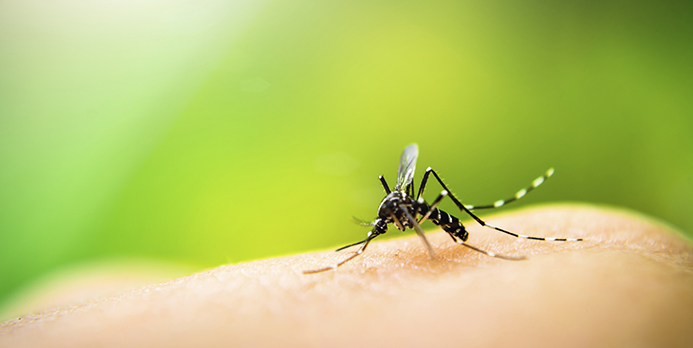Zika has been all over the news lately and has raised some serious concern, especially for women in their childbearing years. Authorities in some South American countries like El Salvador, Colombia and Ecuador have even gotten to the point where they suggest no one have children over the next two years while they are able to learn more about the virus and how to treat it. Continue reading to learn more about the virus, how to prevent contracting it and how to help those affected.
THE BASICS
- The main way that this virus is transmitted is through the bite of an infected mosquito, specifically from the Aedes species. According to the CDC, about one in five people with Zika will become sick. “The most common symptoms of Zika are fever, rash, joint pain and conjunctivitis. People usually don’t get sick enough to go to the hospital and they very rarely die of Zika. For this reason, many people might not realize they have been infected.”
- Mosquitoes become infected when they bite a person who has already been infected by the virus. The CDC says the mosquitoes that carry Zika bite mostly during the day.
- Zika can also be transmitted through sexual contact, blood transfusion and from a pregnant mother to her fetus during pregnancy or at the time of birth.
- To treat Zika virus symptoms, the CDC recommends drinking plenty of fluids to prevent dehydration, getting plenty of rest, taking medicine such as acetaminophen to reduce fever or pain and to avoid taking aspirin
- To avoid contracting Zika virus, ensure that you apply plenty of bug repellent, wear clothing that covers arms and legs and use mosquito netting when possible..
- Zika has been reported in tropical Africa, some Pacific Islands, widely across South America and some travel-associated cases in the United States including one confirmed case in Chicago and five in Illinois.
- For women who are pregnant or trying to become pregnant, seriously consider postponing travel to anywhere Zika virus transmissions are ongoing and take precaution to avoid mosquito bites. Zika has been linked with microcephaly, a serious birth defect where a child’s head is much smaller than normal.
- There is currently no vaccine available to prevent this disease and the understanding of the virus is evolving. To stay up to date, go online to the CDC and the World Health Organization websites.
HOW TO HELP
Give Things
- Donate medical supplies to Partners in Health
- Make a variety of different donations to Medical Teams International
- Donate to Operation Blessings International who are providing mosquito nets and fish that eat mosquito larva, for their water supplies, to people in South America
Give Support
- Donate to the CDC Foundation and their efforts to stop Zika
- Join the hundreds of people who are giving to causes around the world at GlobalGiving. Search for specific causes or countries by keyword.
- UNICEF’s Zika Response Network
- Partners in Health
- International Medical Corps
- Birth Defect Research For Children
- Public Good
UPDATE: According to the CDC, Zika has now been linked to cause more health problems in babies born to mothers who contracted the disease while pregnant including premature birth, neurological issues and eye problems. With cases now in 30 states, researchers have found that the virus may affect the U.S more than originally thought. New maps have been drawn to show that the specific species of mosquito carrying the virus can be as far north as New York. The CDC also explained that researchers are on track with their goal of creating a clinical trial vaccine to begin administering this September.
More from Make It Better:
- Winter SAD-ness: Do You Have Seasonal Affective Dissorder?
- How to Spot Signs of a Concussion
- The Most Common Chromosome Disorder You’ve Never Heard Of

